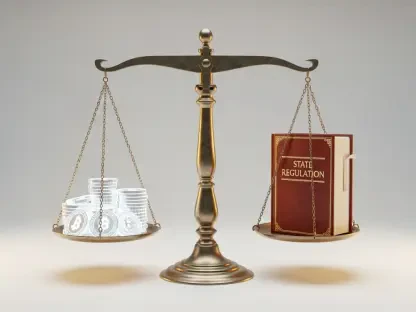In today’s interview, we delve into a significant topic impacting public health and legal frameworks with Donald Gainsborough, a renowned political strategist and policy expert. At the helm of Government Curated, Gainsborough provides insight into the intricacies surrounding recent legal developments and their implications.
Can you explain the significance of Judge Mary McElroy’s recent ruling regarding the $11 billion public health funding?
Judge McElroy’s ruling is monumental in ensuring that public health funding remains available to state and local health departments. Her decision to extend the block on the termination of these funds highlights the judiciary’s role in scrutinizing executive actions, particularly those that can deeply affect public welfare. This ruling not only safeguards essential programs but also sets a precedent regarding the limitations of federal authority in reallocating allocated funds.
What was the initial purpose of this funding, and how was it being utilized by the state and local health departments?
Originally, the funding was authorized as part of COVID relief legislation. Health departments were meant to use these grants primarily for COVID-related initiatives like testing, vaccination, and community health worker support. However, they’ve been crucial in addressing broader public health challenges, such as infectious disease outbreaks and mental health support, demonstrating flexibility beyond their initial scope.
Why did the Department of Health and Human Services decide to rescind these funds? What reasons did they provide?
The HHS argued that the primary need for these funds was for the COVID-19 pandemic response, which has waned. Consequently, they looked to rescind the remaining funds, stating they were no longer necessary. This decision was predicated on the belief that the specific challenges these funds addressed have largely been resolved, despite ongoing needs in the public health sector.
How does the lawsuit argue against the federal government’s decision to terminate these grants?
The lawsuit posits that the federal government doesn’t possess the legal power to withdraw funds it’s already disbursed to states, particularly when those funds have become integral to existing health programs. The legal challenge underscores a disconnect between legislative intent to provide robust public health infrastructure and an executive pivot away from these commitments.
In what ways have the states demonstrated the potential negative impact of losing this funding?
States have made a compelling case by showcasing the critical services and research efforts at risk due to funding termination. From infectious disease research and mental health initiatives to vaccination efforts in vulnerable communities, the abrupt loss of these funds could severely hamper numerous public health efforts, which have been meticulously maintained and expanded because of this financial support.
Why do the attorneys general believe the HHS acted unlawfully in terminating these grants?
The attorneys general argue that the termination process undertaken by HHS lacked proper procedural analysis, which is problematic. They highlight how Congress did not impose strict limitations on fund usage, nor did it grant sweeping authority to HHS for rescission actions—critical oversight points suggesting unlawful conduct at the federal level.
Can you provide examples of how the funds were used for non-COVID priorities?
Even though initially intended for COVID response, the funds have been instrumental in tackling other urgent health concerns. For instance, addressing the measles outbreak in Texas and supporting mental health initiatives show how states leveraged this money beyond its COVID scope, fulfilling diverse health needs in various communities.
How could the loss of this funding affect infectious disease research and treatment efforts?
If terminated, crucial research into infectious diseases could stall, affecting the development of effective treatments and containment strategies. States fear that reduced capability to conduct research and implement treatment protocols could lead to a spike in preventable infectious diseases, stressing the importance of sustained financial support.
What is the importance of vaccination availability in rural communities, and how would it be impacted by this decision?
Vaccination effort in rural areas is pivotal in preventing outbreaks where healthcare access is limited. Losing funding could diminish the capacity to deliver vaccines to these communities, risking increased vulnerability to infectious diseases and potentially widening health disparity gaps between urban and rural areas.
What does Judge McElroy’s decision say about the limitations of HHS’s authority in reallocating or rescinding funds?
Judge McElroy’s decision underscores a fundamental limitation in HHS’s authority, emphasizing that without explicit congressional authorization, such actions are beyond their administrative power. This ruling clarifies that checks and balances are inherent when dealing with financial commitments made by legislative authorities.
How have states built essential health programs around these funds, and what might be the consequences of their termination for these programs?
States have constructed vital public health programs, deeply integrating the allocated funds into their operational frameworks. Losing these funds could dismantle established services, impede health progress, and lead to a public health infrastructure collapse, highlighting the importance of financial stability for long-term program sustainability.
What are the next steps following this ruling, and what outcomes could potentially arise from this legal challenge?
The ruling paves the way for potential lengthy litigation, forcing all involved parties to reassess their strategies. While states seek a permanent injunction against fund termination, federal authorities might explore alternative compliance pathways. Outcomes could redefine future intergovernmental financial relationships and healthcare policy governance.
Do you have any advice for our readers?
Stay informed and active in discussions about public policy. Understanding the interplay of law and health can empower individuals to advocate for effective measures that ensure robust, equitable public health systems. Your voice matters in shaping policy that directly impacts community health.









